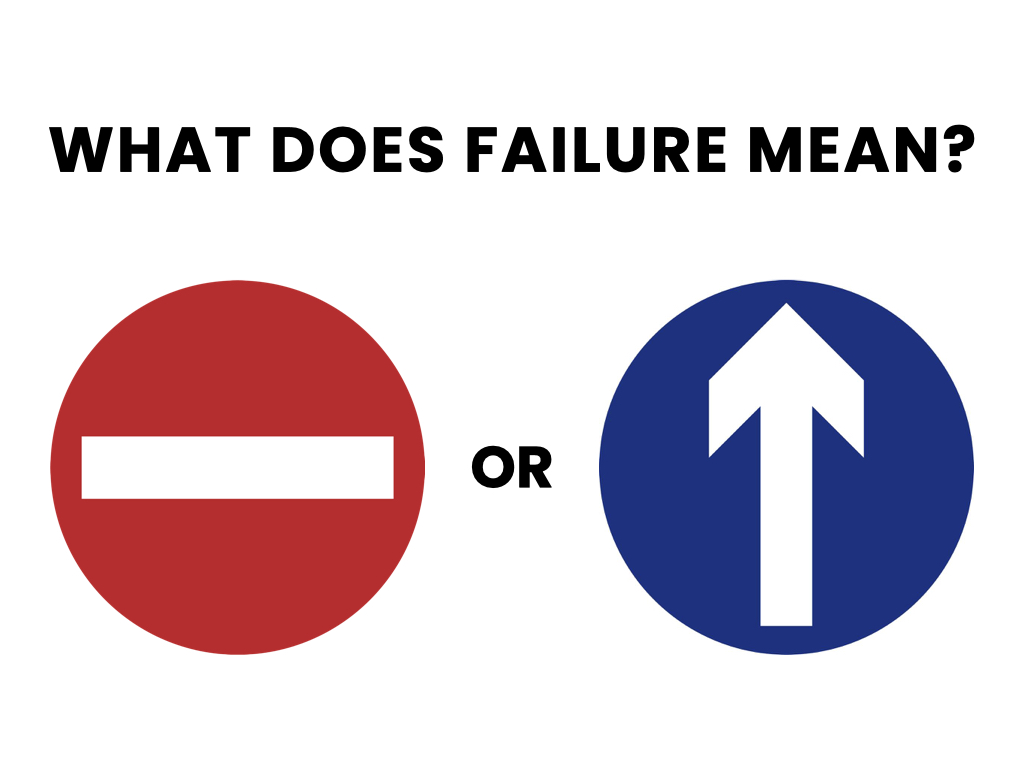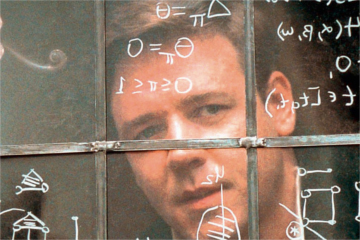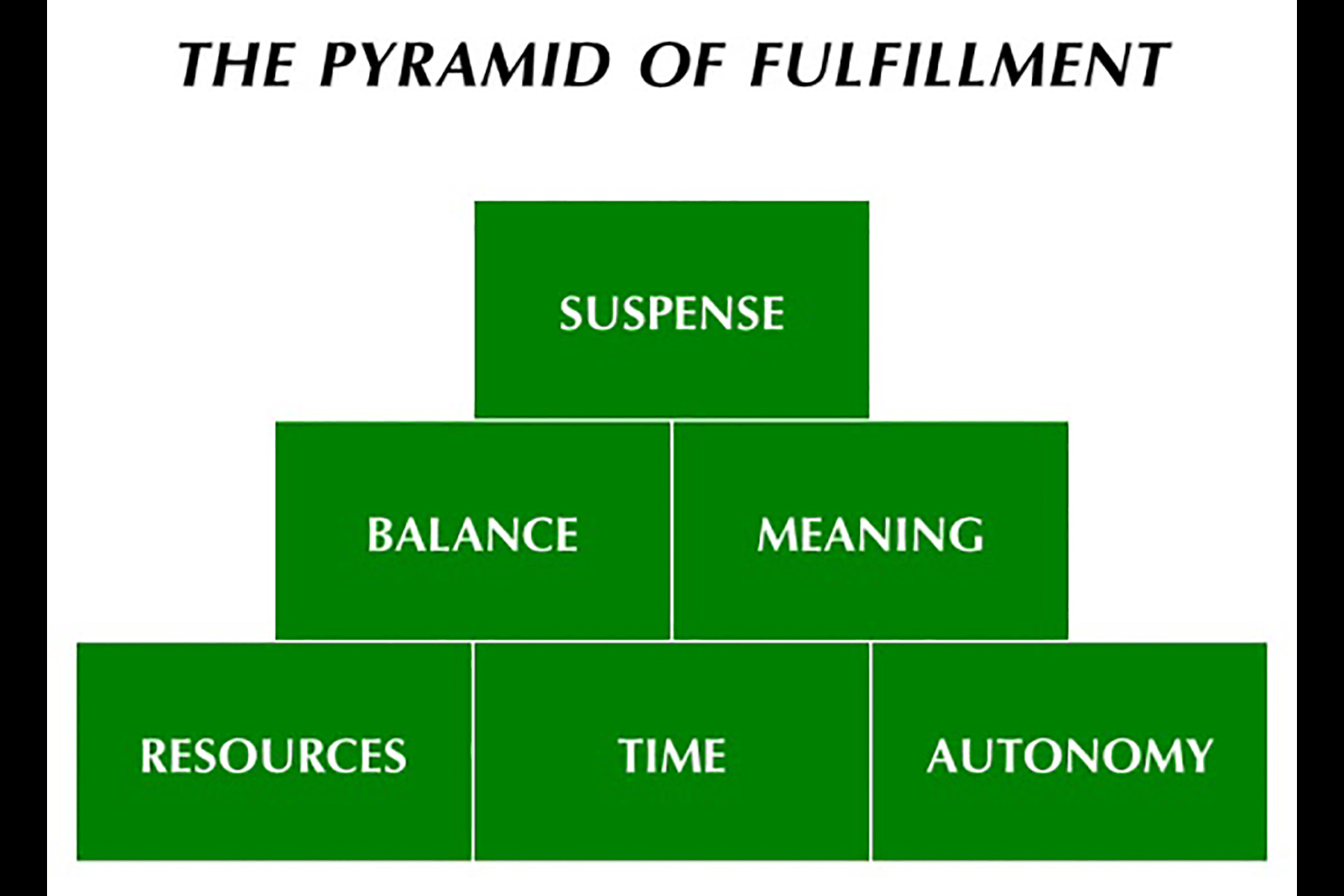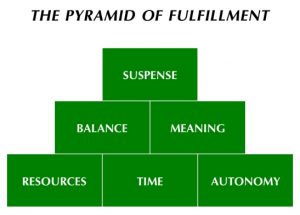Tag: Self-Fulfillment
The Meaning of Failure

When I was 12, my sister Fatima and I sang a psalm at a wedding. She sang the verses, and all I had to do was sing along in the chorus. Simple enough, but I bombed it. Totally out of key. That day, I learnt I couldn’t sing.
A few years later, I learnt to play guitar and joined the youth choir in church. Truth be told, I was more interested in hanging out with my friends and being around girls than singing. After all, I couldn’t sing.
Then I had music classes in the seminary. But I struggled a lot. When I sang in the choir, the conductor, my friend Marco Luciano, would glare at me from time to time. That was code for: Shut up! Just move your lips and pretend you’re singing. No surprise here, after all I couldn’t sing.
While still in the seminary, I played guitar and double bass in two bands. We weren’t famous, but enough to go on tour in the summer. I composed songs for those bands. But I never sang. After all…

Lately, I’ve been enjoying some quality time with my guitar. When my daughter is not around, there’s no one to sing. So I have to sing. At 45, I realised I can learn to sing. I’m no Pavarotti, but I was capable of singing in a recent talk I gave. And my neighbours haven’t complained… yet.
There were many signs indicating that I could probably learn to sing: the choirs, the instruments, the bands, the composing. But I didn’t learn because I thought I couldn’t, plus there was always someone else to do the singing.
Failure means we don’t know something. It doesn’t mean we are incapable of learning it. When we fail it might be a good idea to create ways to force us to learn, at least just a bit.
—
Failure is an “ahead only” sign — you must keep going at least until the next intersection.
—
As teammates, friends, lovers, parents what sign do we hold up when someone fails?
The Trap

Warning: This post is a rather thick philosophical “steak”. If you don’t have much of an appetite, you can save it for later. If you do, take your time and enjoy.
Who is it that is aware that I am thinking?

Let’s start with a demonstration: While you’re reading, can you hear what you’re thinking? Catch yourself thinking. Is it What’s he talking about?, Where’s he going with this? or something else? Go ahead…
Did it? Good! Now, who did that? Who was it that just became aware that you are thinking? You? The same you that was thinking while you were reading?
Before we answer this, notice these two distinct ways of thinking: you can think without noticing you’re thinking, and you can think, aware that you are thinking.
Thinking without noticing you’re thinking is a curse.
Einstein thought that doing the same thing over and over again and expecting different results is the definition of insanity. When life isn’t as good as we want, thinking without being aware of thinking is a curse.
It’s a curse because you’re trapped in the process of thought that creates your reality and trapped in the reality that reinforces your thoughts — round and round in a vicious circle that produces and predicts the same results over and over.
In order to create new thinking, we want to break free from the thinking trap that produces undesired results. Here’s how:
Awareness thinking is to become aware
of the thought processes that go on in your mind.
In awareness thinking, there’s your thoughts and then there’s something else that notices your thoughts. That something else is… YOU! You break free from the trap because you become aware that you are NOT your thinking.
You see that your thoughts — like your hand — are not you. If your hand is cut off and dies, you do not die with it (unless you don’t treat it). This realization releases us from the domination of thought, enabling us to create new thinking.
As Stephen Covey, author of The Seven Habits of Highly Effective People, said:
The way you see the problem is the problem.
The way we see the problem is thinking without being aware that we’re thinking. But to look at the way we see the problem gives us awareness of our thinking and that it is governed by a set of principles that lead to a set of outcomes.
Becoming aware of the thought process and it’s principles gives you the opportunity to create new principles, thus leading to new outcomes.
A real example: Nobel Prize-winning mathematician, John Nash, on whom the book and film “A Beautiful Mind” are based, was diagnosed with paranoid schizophrenia.
(BTW, “schizophrenia”, from the Greek, literally means “a splitting of the mind” — befitting, seeing we’re talking about two split ways of thinking.)
Awareness of thinking
frees you from the trap of thinking.
After years of treatment, Nash chose to stop taking medication and decided to reject his delusional thinking habits. As a result, Nash willingly “thought” himself out of this disorder:
“I began to intellectually reject some of the delusionally influenced lines of thinking which had been characteristic of my orientation. This began with the rejection of politically-oriented thinking as essentially a hopeless waste of intellectual effort. So at the present time I seem to be thinking rationally again.” John F. Nash, Jr. – Autobiography
Awareness of his delusional thinking freed him from it. Aware of his thinking, Nash was able to see its effects (a waste of intellectual effort). This became the new governing principle for the thought process that rejected the delusional thoughts.
If there’s a lesson here, it might be: When suffering, trapped in my thoughts about reality, ask the question: Where is the who that is aware that I am not my thinking?
Love to hear your comments!!
It’s Always My Fault!

 On Tuesday, a client and I met to discuss a session we’re going to do on relationship management. One of the topics was how the corporation’s managers sometimes can’t stand some of the people they work with. They feel it’s useless and case closed.
On Tuesday, a client and I met to discuss a session we’re going to do on relationship management. One of the topics was how the corporation’s managers sometimes can’t stand some of the people they work with. They feel it’s useless and case closed.
I love this topic, especially when it comes up in my seminars. It’s always interesting to see the look on participants’ faces when I present the commitment ratio of the relationship building system I created: 80% you; 20% the other person. What?!
Yep, that’s the look on their faces. You do 80% of the work and the other person does 20%. “That’s not fair!” — some might say. Relationship management at work is not about fairness (that comes later), it’s about effectiveness.
The ultimate challenge is not
how you relate to others. It’s how you deal with YOU!
Relationships need to function for everyone to get their jobs done. An 80/20 ratio assures your commitment produces functioning results that guarantee performance. “But it doesn’t make sense: the other person is the problem, not me!” — others object.
This reminds me of a story back in my university days. One late night, as I was making my way home, I saw a man literally banging his head against a street post. I kind of recognized him, so I walked up to him.
After a long monologue, I came to learn his tragic story. His wife had left with another man and took the children. His partner was no longer a partner. His business was crumbling. He was drinking… I almost felt sorry for him. But then I didn’t.
It’s a tough lesson: either you take on the responsibility
of being in charge of the events of your life or… you don’t.
When he finally asked if I wasn’t going to say anything, I asked: “You expected people would behave in a certain way, right?” What?! — was the look on his face. Then silence. Then a smile.
“That’s right”, he said. “I’ve blamed everyone around me for everything that has happened to me. That puts the power to lead my life in their hands, not in mine. To be in charge, I need to accept it’s my fault.”
That day, that man began to understand that it will always be up to him to take charge of how relationships affect his life and how he will proceed. He understood that the outcomes of our relationships start with us.
Today, that man leads a fulfilling life — lots of challenges no doubt, but fulfilling. Today, he is an 80/20 man, committed to producing functioning results that guarantee performance. His approach is: regardless of what happens, it’s always my responsibility.
Could this work for you? I’m eager to see how the managers will respond!
The Pyramid Of Fulfillment

What are the first six words that pop into to your head when you hear the words fulfillment, success or happiness? Before I tell you why, please write them down.
The other day, my friend and fellow coach at IESE Business School, Tony Anagor — Cofounder of LifestyleDMC and Lifestyle Barcelona, companies that specialize in organizing unique events and experiences — was invited to give a talk to MBA students from around the world who were in Barcelona as a part of the University of Manchester’s European Summer Study Programme.
When Tony asked me if I’d like to share the stage with him, I immediately jumped on board: for me students mean the future, and I like being in touch with the future.
During my presentation, I asked the students this same question and shared with them my six words. They describe the decisive pieces to living a fulfilling life. I call it “The Pyramid Of Fulfillment”. Let’s have a look:

Resources: This includes money, but not predominantly. Seth Godin gets it well in a blogpost:
“Don’t get caught confusing money with security. There are lots of ways to build a life that’s more secure, starting with the stories you tell yourself, the people you surround yourself with and the cost of living you embrace.”
Time: Plenty of resources and no time to use them is not worth much. So, how much time do you have for you? Not for personal obligations apart from work, but time for your thing? I find that sometimes even my free time is booked.
Autonomy: Resources and time are useless if you’re not free to do with them what you desire. In the end, the goal is to live and work like you’re your own boss. Self-determination is a key factor for lasting motivation.
Balance: Juggling the different areas of your life is an art. It can also be your dismay. A fulfilling life is like an orchestra. It’s not enough to play one instrument well. You want all of them to do well and to do it together.
Meaning: With the resources, time and opportunity to live life on your terms and balance in doing so, you’re also going to need meaning. Life needs to make sense. What good is a wonderful orchestra isolated in a soundproof room where no one can hear it?
A life that does not contribute
to something bigger than itself lacks purpose.
Suspense: This is one of my favorites. I wrote about it in a previous post. Fulfillment is not about reaching the finish line. It’s about learning the game, keeping it going and ultimately becoming a game changer! This ongoing process requires excitement and energy. And without suspense, that’s really not possible.
What does your pyramid look like? I’m sure there are other significant pieces we could add. Love to hear about it.
The Sound Of Suspence

Do you like to meet interesting people? I love it. And it always surprises me when I notice this:
– excitement and energy in the lives of people that struggle;
– and dullness and demotivation in the lives of people who prosper.
Why is this? Wouldn’t you expect the opposite? It seems there’s more to self-fulfillment than “making it”.
Self-fulfillment is when you feel proud
to truthfully share any aspect of your life.
Imagine life is an orchestra. Self-fulfillment is when each part of our life creates sounds that all together result in something nice. It’s not enough to play one instrument well. We want all of them to do well and to do it together.
This means self-fulfillment is a state of combined harmony of the different areas of our life. And we can’t achieve this on our own because our lives involve other people and their self-fulfillment.
Self-fulfillment depends on the amount of suspense
you’re willing to allow into your life.
What makes a good story? Suspense resolved. No suspense, no story. Too much, and we might asphyxiate. Not enough, and it’s boring. From time to time, we’ll want to stir things up in life to make sure the story continues to be interesting.
So, self-fulfillment will be that ongoing fluctuating process in your life where you deal with some areas first, while others wait unattended. And that’s okay.
What is not okay is if the process comes to a halt, because stagnant streams stink. This is why just “having it all” isn’t enough.
In the end, the question that matters is: What suspense am I resolving and who is part of it? So, the next time you meet new people, be sure to feel proud and share the sounds of your suspense!

